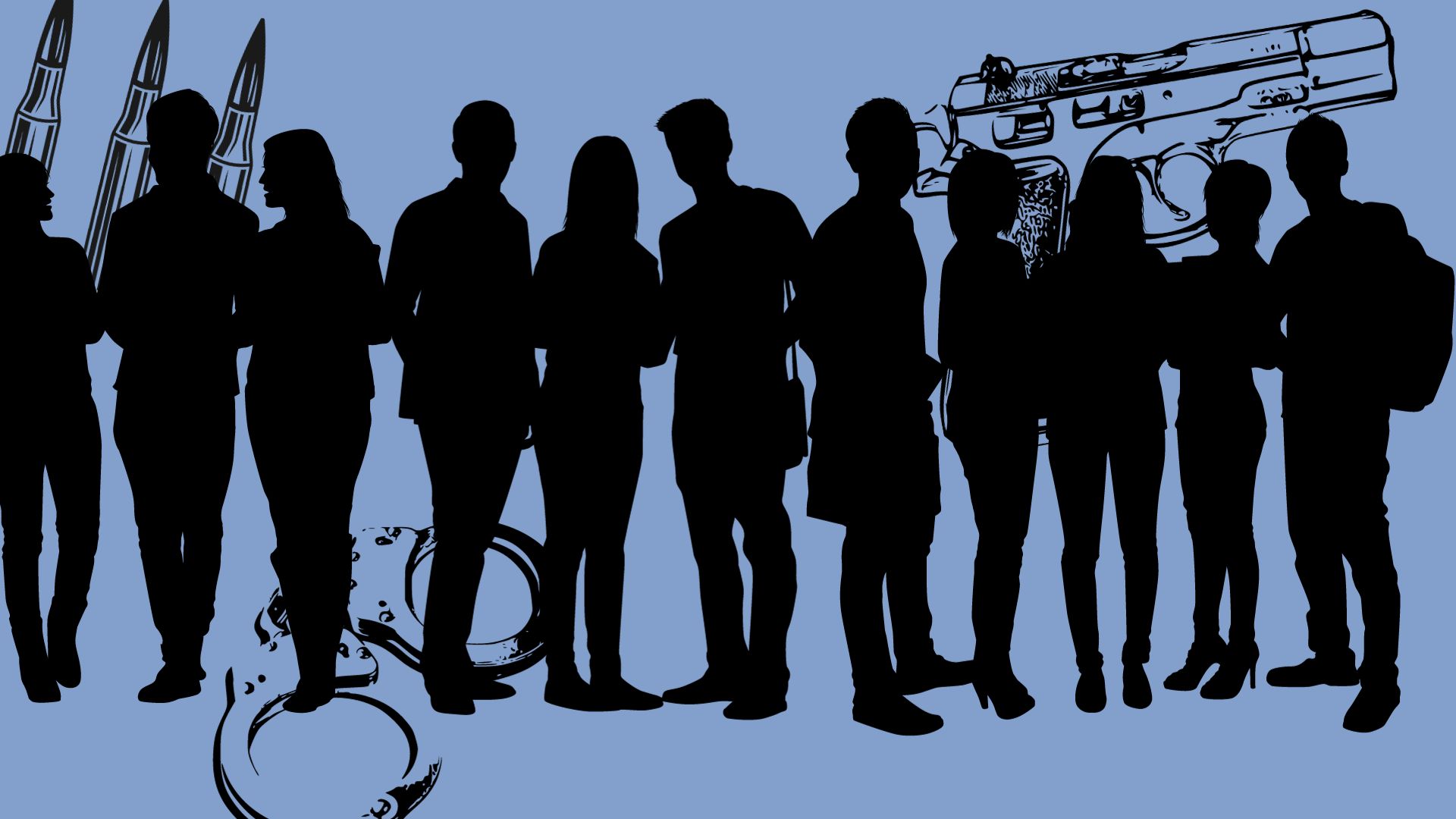Coping With Community Violence: Mental Health Resources

Emotions after a shooting can be difficult to process.
Many of us find it difficult to process acts of community violence, especially a school shooting. We question the perpetrator's motives. We wonder how law enforcement handled the situation. We ask "Why here? Why now?" We think about how safe we really are.
It's normal to experience strong feelings of fear, dread, sorrow and even guilt after an act of community violence. Even people who were not directly impacted by a shooting can develop symptoms of emotional distress. You may feel shock, anger, grief and disillusionment. You might have trouble concentrating, eating or sleeping. This reaction is common and in most cases will pass. Most of us rely on family and friends as a support network. We talk about the tragedy that took place, try to comfort each other and reach a sense of understanding that things will soon get back to normal.
Some people find it harder to cope with acts of community violence than others. Their distress may impact their ability to function normally. Children may struggle with these events. Whether they witnessed a shooting, saw it on social media or heard about it from friends, they often feel scared, unsafe and confused about what happened.
Use the resources below to find a mental health provider, get tips for managing distress after a shooting and learn how to talk to children about community violence.
Resources to Help Cope with Community Violence, Including Mass Shootings
Mental Health Services:
- Mental Health Treatment Facility Locator
800-789-2647
Website: http://findtreatment.gov - Website: http://www.mentalhealth.gov
- Suicide and Crisis Lifeline
988
Website: 988lifeline.org - SAMHSA Disaster Distress Helpline
800-985-5990
Website: www.samhsa.gov/find-help/disaster-distress-helpline - (Iowa Residents) Embrace Health, Teletherapy
515-612-9583
https://www.embracehealth.com/https://www.embracehealth.com/
Guides and Tips:
- Managing Distress After a Shooting, by the American Psychological Association
https://www.apa.org/topics/gun-violence-crime/mass-shooting - Helping Youth Cope After a Mass Shooting, by Youth.Gov
https://youth.gov/feature-article/resources-help-youth-cope-after-mass-shooting - How to Talk to a Child About Acts of Violence, by Embrace U
https://www.embraceu.com/how-to-talk-to-a-child-about-acts-of-violence/ - Talking to Children about Violence, by the National Association of School Psychologists
https://www.nasponline.org/resources-and-publications/resources-and-podcasts/school-safety-and-crisis/school-violence-resources/talking-to-children-about-violence-tips-for-families-and-educators - How to Talk to Kids about School Shootings, by Yale Medicine
https://www.yalemedicine.org/news/school-shootings-talk-with-kids
Taking Care of Yourself
You may wonder how to go on with your daily life after the school shooting. Here are some tips to help you cope during this challenging time and strengthen your resilience.
Talk about it
Speaking with others who have shared an experience can help you feel connected. Seek support from friends and family. Consider talking with a therapist or mental health expert for guidance.
Strive for balance
It’s easy to become overwhelmed. Remind yourself of people and events which are meaningful and comforting. Striving for balance empowers you with a healthier perspective.
Turn it off and take a break
We want to stay informed, but limit the amount of news you take in. Images can reawaken your feelings of distress. Do something you enjoy. It’s ok to distract yourself.
Honor your feelings
It’s common to experience a range of emotions after a tragedy. It’s ok to feel sad, scared, exhausted or off balance. Acknowledge how you are feeling.
Signs and Symptoms of Emotional Trauma
Physical Signs
- Headaches
- Sleeping too much or too little
- Stomachaches
- Racing heart
- Easily startled
- Overly tired or exhausted
Emotional & Mental Signs
- Overwhelming fear
- Helplessness, hopelessness
- Guilt
- Shock
- Irritability
- Panic and anxiety
- Disbelief
- Intrusive thoughts
Impacts of Tragedy and Trauma
Witnessing a mass shooting or a tragic event can lead to trauma due to the profound psychological and emotional impact of such experiences. Trauma is a complex psychological response to an event that is shocking, distressing, or harmful. Such trauma can affect cognitive functions such as concentration, memory, and decision-making. Individuals may find it difficult to focus on tasks, experience memory lapses, or struggle with making simple decisions.
Trauma often leads to intense and overwhelming emotions. Individuals may experience heightened anxiety, depression, anger, or a sense of emotional numbness. Managing and regulating these emotions becomes challenging, impacting day-to-day emotional well-being. Witnessing a mass shooting can strain relationships and social interactions. Traumatized individuals may withdraw from others, have difficulty trusting people, or struggle to relate to those who have not experienced similar experiences.
Trauma can affect a person's ability to perform at work or maintain employment. Difficulties concentrating, increased irritability, and emotional distress may lead to decreased productivity and job satisfaction. Some individuals may develop avoidance behaviors as a coping mechanism. They may avoid places, activities, or people associated with the traumatic event, leading to limitations in their daily life and potential isolation. Trauma often contributes to sleep disturbances such as nightmares, insomnia, or night sweats. Poor sleep quality can exacerbate existing challenges and contribute to overall fatigue and difficulty functioning during the day. If you or someone you know needs help processing an act of community violence, understanding and controlling emotions, or regaining a sense of normalcy consider seeking the help of a mental health professional.
How to Talk to Children About School Shootings
- Stay calm.
- Be their source of information.
- Let them lead the conversation.
- Give them space to heal.
- Feel with them. Don’t process with them.
- Answer questions honestly but age-appropriately.
- They don’t need all the answers.
- Talk about what they can control.
- Ask what would help them feel safe at school.
- Remind them of the truth you know.
If you or someone you know is in need of a behavioral health placement, behavioral health referral, or experiencing a mental health emergency or crisis, please do not use this website. Instead, use these crisis resources to speak with someone now or access local support.

